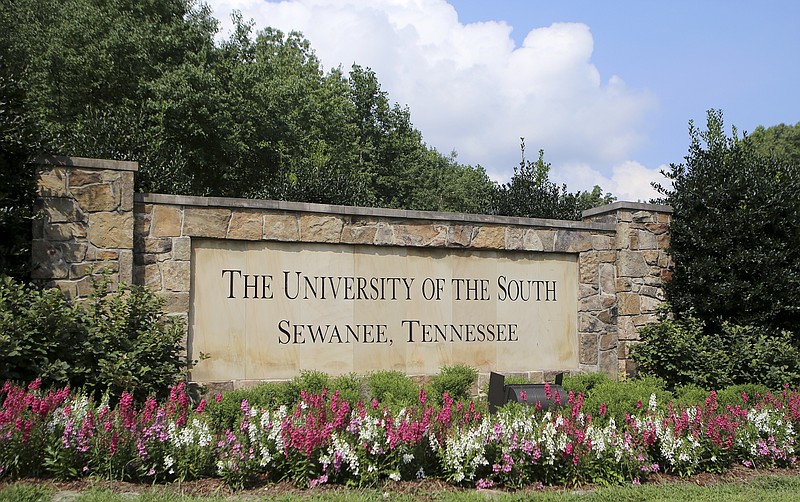More than 300 students, faculty and alumni of Sewanee: The University of the South have signed a letter to Vice Chancellor Reuben E. Brigety II asking the school to revoke the honorary degree of conservative Christian writer Eric Metaxas.
Signers of the letter call for the revocation of Metaxas' degree due to several anti-LGBTQ and anti-democratic statements he has made, according to the letter.
"Since the conferral of his honorary degree, Eric Metaxas has used his substantial public profile to attack lesbian, gay, bisexual, transgender and queer people and to attack American democracy itself by his role in events related to the Jan. 6 insurrection attempt. Both are inconsistent with the values of the University of the South and stand in enmity with Sewanee's commitment to diversity, inclusion and justice. Pursuant to Title 19 of the university ordinances, we, the undersigned, write to request revocation of the honorary degree granted to Eric Metaxas on Jan. 16, 2015," the letter states.
The letter cites tweets and articles by Metaxas, including an article he wrote in 2015 called "Disproportionately Gay: Alarming Trend in Youth Lit" and a 2021 New York Times article that states Metaxas "repeatedly claimed the [2020 presidential] election results were fraudulent."
Three hundred fifty-two people had signed the letter as of Tuesday afternoon.
Attempts to reach Metaxas for comment have been unsuccessful.
Metaxas holds an honorary doctorate from Sewanee. He has written children's books and columns pertaining to his religious beliefs and hosts a national radio program, according to his website. Several of his commentaries have appeared in the Times Free Press Faith and Perspective sections.
Sewanee spokesperson Laurie Saxton said in a Tuesday email that the process of conferring and revoking degrees is a confidential one, and the revocation process is four steps: a written request starts with the vice chancellor, then goes to the Joint Regent-Senate Committee on Honorary Degrees, the University Senate and the Board of Regents, who all have to approve revocation in that order.
"In the case of Eric Metaxas' honorary degree, the process is underway, though still in the early stages. The vice chancellor has sent the request to the chair of the Joint Regent-Senate Committee on Honorary Degrees to be shared with the committee members," Saxton said.
Most recently, the school conferred three honorary degrees in late September and one during fall convocation earlier that month. In May, the school conferred an honorary degree on the spring 2021 commencement speaker, according to a news release.
Members of the school community called for the revocation of a public figure's honorary degree for the first time in 2018, when the school revoked the honorary degree of television host Charlie Rose after allegations of sexual harassment made by women who worked for him.
"This may be the first time the question of revoking an honorary degree has come up - but it is likely not to be the last time, and the university is now better prepared," then-Vice Chancellor John McCardell said in a statement to the Times Free Press in 2018.
Last year, an online petition calling for the school to revoke Metaxas's degree garnered 331 signatures and alleged a tweet from Metaxas used "white supremacist undertones."
"Jesus was white. Did he have 'white privilege' even though he was entirely without sin? Is the United Methodist Church covering that? I think it could be important," Metaxas said in the tweet.
The Board of Regents at Sewanee released a statement in September 2020 addressing the school's role in segregation and white supremacy, committing to diversity and rejecting prejudice.
"It's my belief and I think the belief of the other people who signed the letter that specifically, Mr. Metaxas's long history of anti-LGBTQ bigotry and his support for the Jan. 6 insurrection, that that's contrary to those values," said R.G. Cravens, an alumnus of Sewanee who wrote and sent the letter to the vice chancellor.
"We're asking the university to follow through with the values that it's already said it believes."
Contact Anika Chaturvedi at achaturvedi@timesfreepress.com or 423-757-6592.
